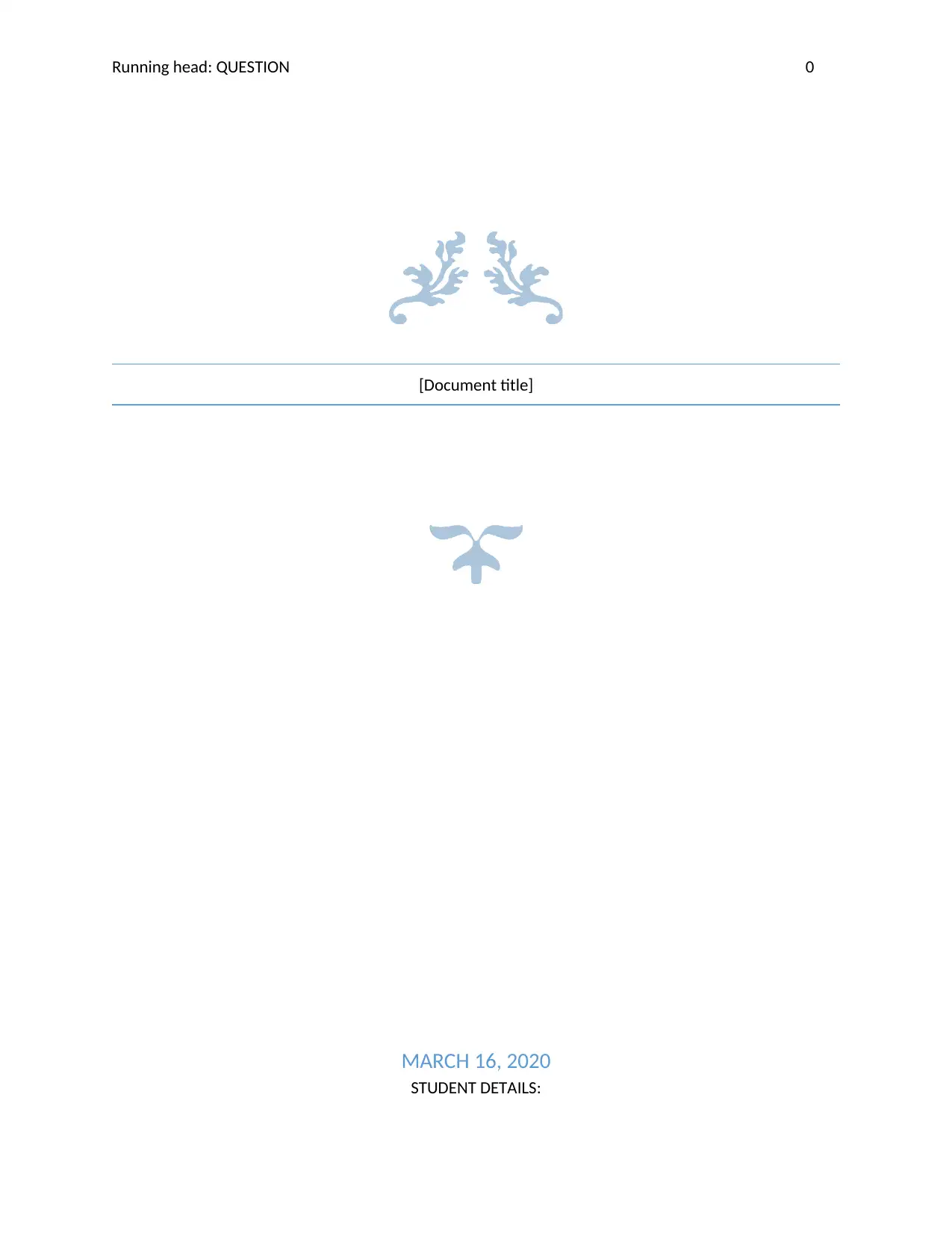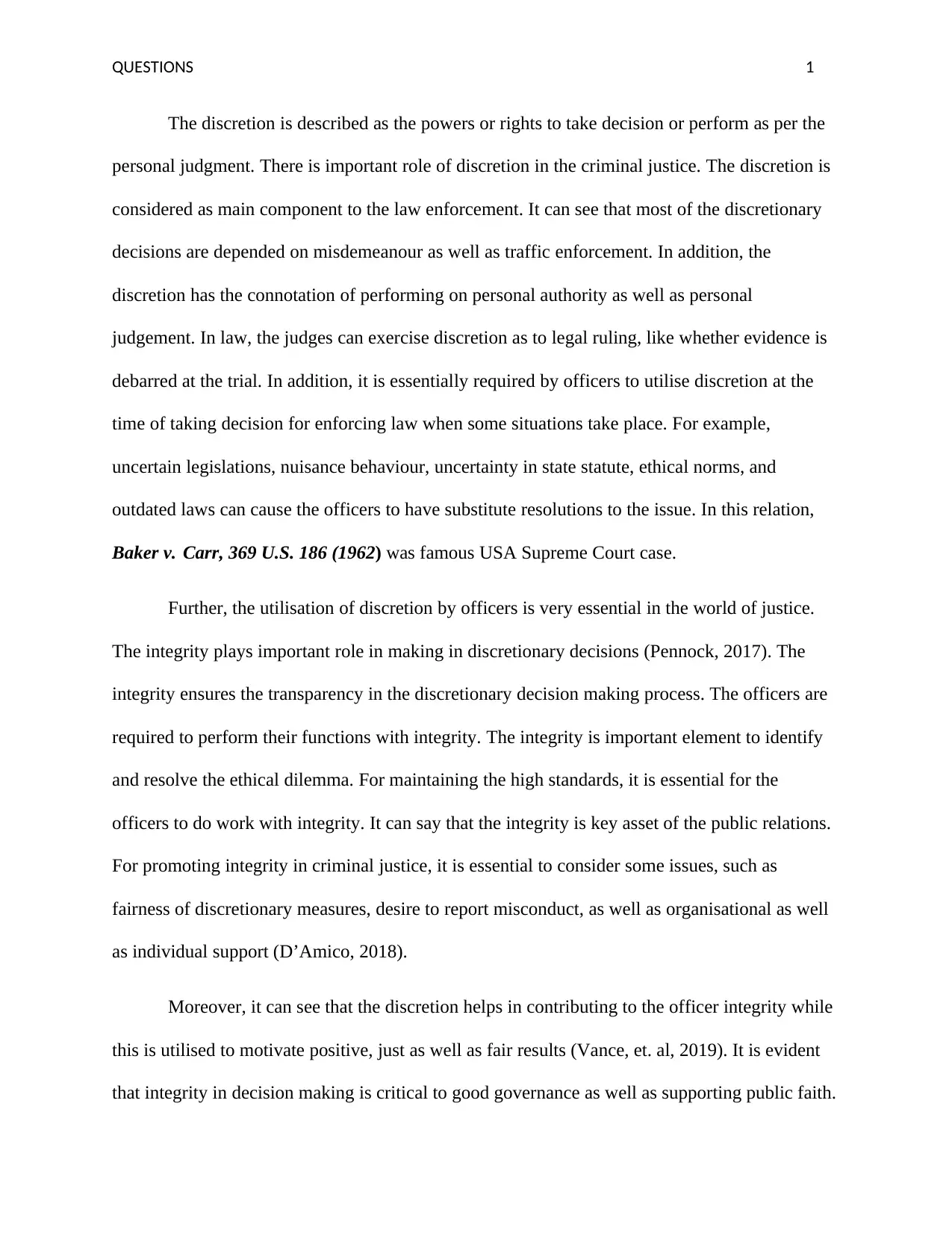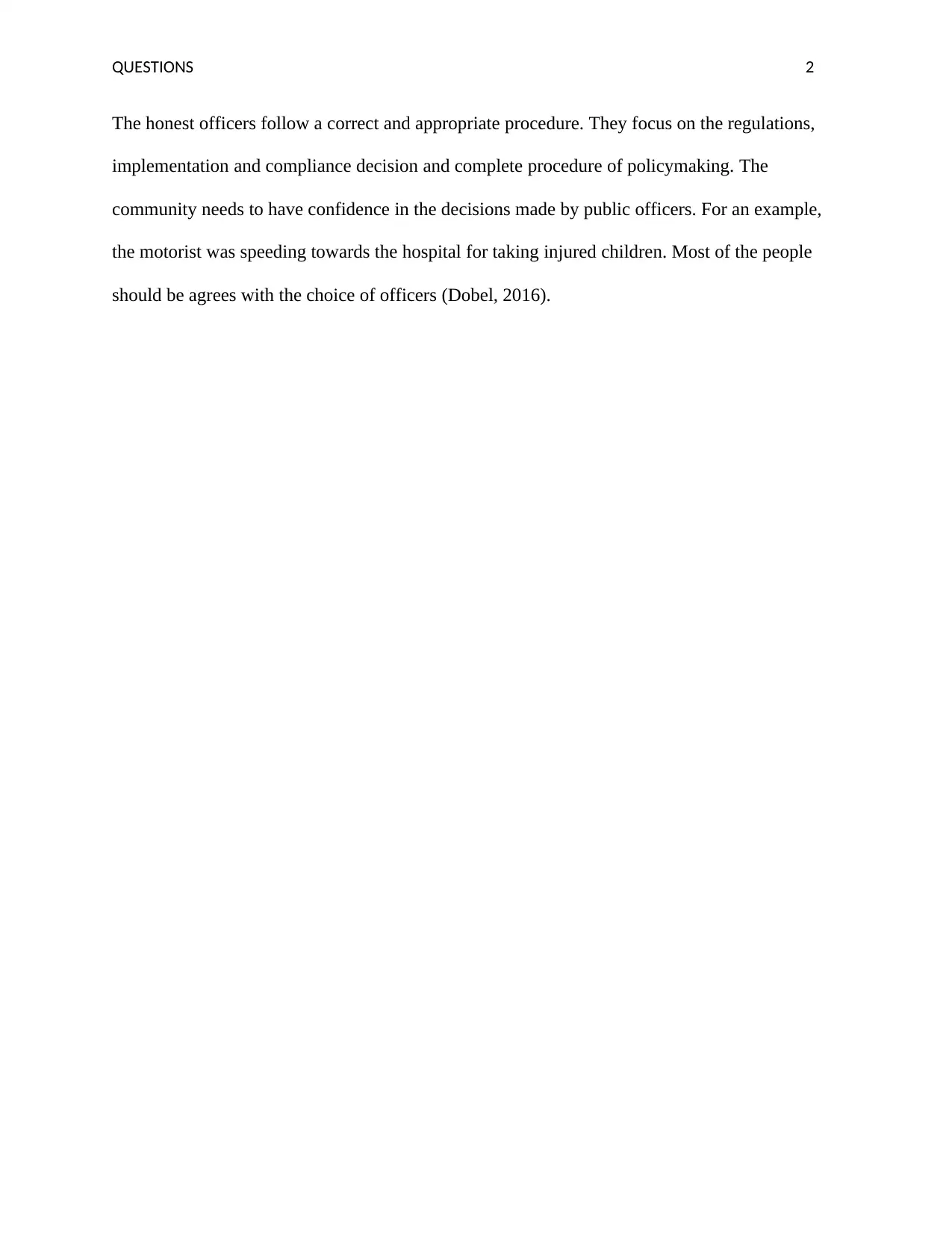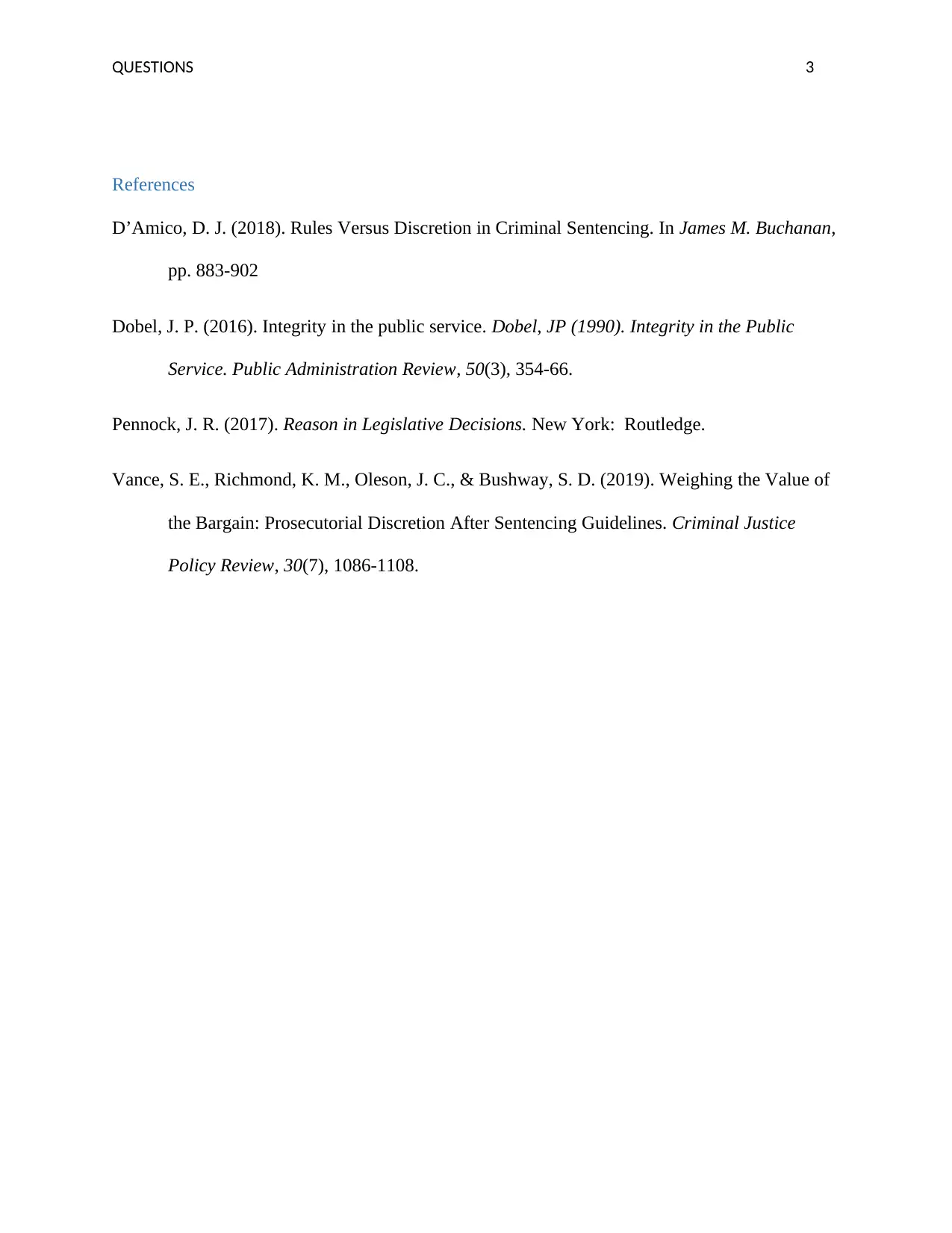Criminal Justice: Discretionary Decision Making Elements Analysis
VerifiedAdded on 2022/08/22
|4
|618
|17
Homework Assignment
AI Summary
This assignment examines the pivotal role of discretion within the criminal justice system, highlighting its significance in law enforcement and judicial proceedings. It emphasizes how discretionary decisions are often made in response to uncertain legislations, ethical norms, and outdated laws, which can lead officers to explore substitute solutions to the issue. The document explores the interplay of discretion with integrity, authority, and morality. It underscores the importance of integrity in ensuring transparency and fairness in discretionary decision-making, emphasizing the need for officers to act with honesty and uphold public trust. The assignment references key legal cases and academic sources to support its arguments, offering a comprehensive analysis of the complexities involved in discretionary decision-making within the realm of criminal justice.
1 out of 4






![[object Object]](/_next/static/media/star-bottom.7253800d.svg)